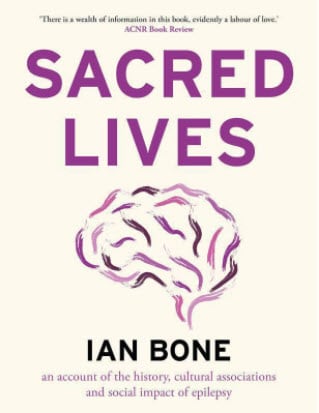Sacred Lives: An account of the history, cultural associations and social impact of epilepsy

Authors/Editors
Ian Bone
Publisher
The Book Guild Publishing
Additional Details
Length: 369 pages
Cost: £14.99
Type: Paperback
Sacred Lives tells the history of epilepsy from ancient times, when the condition was felt to be sacred, to the present day. The initial chapters deal with the early myths and mystique that surrounded it and led to persecution, demonization, incarceration and social rejection. It is only by the nineteenth century that epilepsy becomes accepted by physicians as a physical condition and not a manifestation of madness or the result of a dangerous contagion. The first pioneers of scientific advancement, along with their contributions, are described along with the often serendipitous discovery of effective drug and surgical treatments. Whilst science had advanced, regrettably social acceptance did not. The removal of those with epilepsy from the prisons and poor houses to "colonies” and special hospital wards, along with the formation of charities offering support, marks the beginning of a more compassionate approach to care; but there was still a long way to go.
Why epilepsy became and continues to be so stigmatized can be best understood by observing the manner in which, over centuries, it has been presented in the arts and media. This book reviews how it has been portrayed in literature, paintings, in the cinema and on television, in music and the theatre, in newsprint and on social media. Sacred Lives takes a look at the lives of writers, painters, musicians and actors with epilepsy and analyses how they managed their condition and its impact on their art. Many historically famous people were claimed to have had epilepsy but what is the evidence for this? Available medical histories of many of these figures are reviewed to confirm or refute their diagnosis. Only a handful of those currently in the public eye openly declare their epilepsy. The reasons for this and the negative and self-stigmatizing consequences of such silence are discussed. No other condition has been so heavily legislated against with respect to employment, marriage, migration, travel, driving and employment; and regulations in relation to these are reviewed from an historical and global perspective. From the Middle Ages onwards, epilepsy has been associated with criminality and antisocial behaviour. The evidence for this is analysed, famous court cases described and notion of criminal tendency, violent behaviour and the “epileptic personality” discounted.
Sacred Lives addresses how others in society see those with epilepsy and why negative perceptions and misconceptions result in stigmatization, loss of opportunity, and social isolation. The manner in which educators, law enforcers, employers, carers and those with epilepsy regard the condition is reviewed with suggestions for improvement made. The book concludes with a personal account on living with epilepsy, as a parent, taking the reader from diagnosis in childhood through to the pitfalls of adult life. This epilogue aims to provide guidance, based on experience, to help other families and those with epilepsy on their journey.
ISBN: 9781913913991
Views: Last Updated: April 05, 2022
Subscribe to the ILAE Newsletter
To subscribe, please click on the button below.
Please send me information about ILAE activities and other
information of interest to the epilepsy community